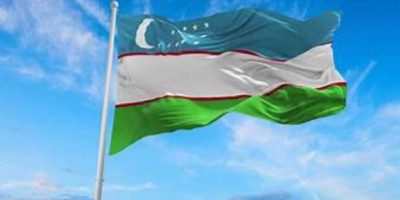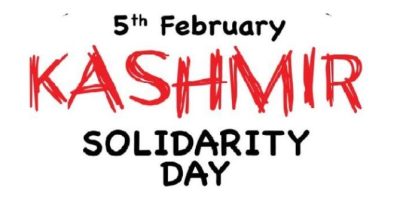GSP PLUS STATUS: Don’t squander EU goodwill
Imtiaz Gul
The Generalised System of Preferences Plus (GSP Plus) that the European Parliament recently granted to Pakistan for three years underscores an unusual level of goodwill for the conflict-hit country. The status has evoked considerable optimism, embedded in the potential of increased partially zero tariff exports to the European triggered. This also prompted Minister for Finance Ishaq Dar to speculate that theoretically the GSP Plus could add up to $2 billion to Pakistan’s exports to the EU, which are currently valued at about $5.6 billion a year, with textiles accounting for the majority of it (the duty on textile exports will be reduced to zero from existing level of 9.6 percent).
Realistically, most economists argued, even if the GSP allowed up to 20 percent additional exports, it would amount to about 1 billion dollars of additional revenue. Some of them reckon that the country’s exports will go up to $400 to $500 million per annum while others speak of the potential of up to $1.6 billion, depending upon Islamabad’s ability to manage this facility to gain maximum benefits, and whether the supply-side bottlenecks such as electricity can be removed. Another equally important prerequisite is the readiness of the textile industry for encashing this opportunity without looking up to the government for concessions. For securing the GSP Plus, Pakistan had to continue with the moratorium on death penalty. It has meanwhile also signed or ratified 27 conventions on human rights including those that relate to torture, illegal confinement and protecting human rights were also ratified.
Let us look at the issue a little closely and dispassionately – both in the political and economic context, particularly keeping in view how Pakistan practically squandered the goodwill that had accompanied the creation of the Friends of Pakistan (FoP) club in Tokyo in April 2010. Members of the FoP had then committed a whopping 5.5 billion dollars in project assistance in recognition of the sacrifices Pakistan had rendered in the war on terror. The GSP Plus resonates more or less similar sentiments, and here in Pakistan it has triggered a wave of euphoria and chest-thumping within the governance structures, including even the Punjab governor. Everybody who matters claimed credit for it; we worked hard for it and got it, they said. We also know that similar efforts for getting greater access to the US market have, however, thus far remained futile, largely because of political reasons.
Frankly, the GSP Plus resulted from an unusual wave of sympathy and empathy for Pakistan’s current situation. Much of this status we owe to the goodwill that currently exists among the EU diplomats in Islamabad. Most of the diplomatic missions including those of EU, Germany, United Kingdom, France, Italy and Sweden worked tirelessly through their cables and personal interactions in Brussels, and intensely lobbied with their respective capitals to sensitize them on Pakistan’s legitimate needs. Unlike their US counterparts, most EU diplomats took a more pragmatic view than relying on political instincts. The GSP of course is a political decision, yet EU envoys did not make it hostage to whatever they may think of Pakistan in political terms. Of course, Pakistani governments – beginning from General Musharraf through to Zardari to Prime Minister Sharif — kept pleading their case in the European Commission, then at the European Council and finally in the EU Parliament for extracting the GSP Plus concession from the EU
Secondly, the GSP Plus doesn’t really offer miraculous remedies to Pakistan’s structural ailments; theoretically, Pakistan can export 6,000 products on zero duty and can export about 13% more than it did in 2012-2013. Practically, however, Pakistan exports only 150 – or 2.5% — of the total 6,000 duty-free product lines that the EU has offered. This is a huge impediment and represents a daunting challenge not only to the government, but also to the exporters; how to remove the supply-side bottle-necks, and whether the industry can diversify its export base.
EU accounts for 25 percent of Pakistan’s exports and 10 percent of imports. The bilateral trade volume is $10.9 billion with trade surplus of $1.78 billion in Pakistan’s favor.
Pakistan exports mainly textiles and leather products to EU and imported mechanical and electrical machinery, chemical and pharmaceutical products.
One of the textile tycoons, Mirza Ikhtiar Beg, explains that the main reason behind the narrow export base is the European demand of particular Pakistani products like leather, textile products and carpets. Khurram Dastgir, the minister for commerce, also admits that “in the coming days the foremost challenge is how to diversify an extremely narrow base of exports.”
The minister and industrialists agree that the GSP Plus status has made the country an attractive destination for regional investors and a Chinese company has already bought 52% stakes in a textile mill and will invest $2 billion in expansion to gain advantage. The government also plans incentives for the industry to respond to the opportunities created by the GSP Plus status.
Thirdly, and this is related to the issue mentioned above, will the rent-seeking industry – addicted to state-patronage and undue incentives – work its way for greater share in EU on its own or keep looking up to the government for supporting crutches?
The November 28, 2013 tax amnesty package for mighty traders essentially one again exposed the “rent-seeking” mindset that rules Pakistan; on the one hand, the government committed strict tax enforcement with the IMF, and on other it flouted all promises by announcing no-tax-regime for the rich and mighty traders, reflecting “shoot from the hip and damn the consequences”.
Even a top tax official of the Federal Board of Revenue (FBR), Shahbaz Rana, couldn’t hide his dismay by publicly decrying tax concessions as detrimental to the tax reform agenda, which he said had made this year’s budget irrelevant”.
Fourth, will the government – which largely represents tax-evading businessmen, industrialists and landlords – take advantage of the situation arising out of the GSP Plus and go for real structural reforms with the help of western advice or nor, or conduct itself the way its predecessor did vis-à-vis the Friends of Pakistan?
The FoP had promised project aid, contingent upon demonstrably solid infrastructure project proposals which could have spurred growth and productivity. But the then government miserably failed in presenting the Club with a single impressive project. Instead, president Zardari sent Hina Rabbani Khar and Shaukat Tareen, the then finance minister, to various members of the FoP to request “conversion of at least half of the 5.5 billion dollars in cash.” With these overbearing overtures, and the continued refusal to reform the taxation system, Pakistan’s then government lost favour with the FoP. The present government is no different on taxation issues, more inclined to serve the mighty business and industry than the common people. And the risk of losing the EU goodwill and eventually squandering the possible benefits off GSP Plus still loom as large as in the past.
Imtiaz Gul is the executive director of the independent Centre for Research and Security Studies, and the author of the recently released book Pakistan: Before and After, published by Roli Books, India Email: [email protected]
Related News

Investing in Tomorrow: How Uzbekistan is transforming tts youth into an engine of national progress
By: Adam Saud Future of any country lies in the destiny of its youth. ThereRead More

Kashmir Solidarity Day and an Unfulfilled Right
by Muhammad Mohsin Iqbal Conflicts among human societies are as old as civilisation itself. DifferencesRead More


Comments are Closed